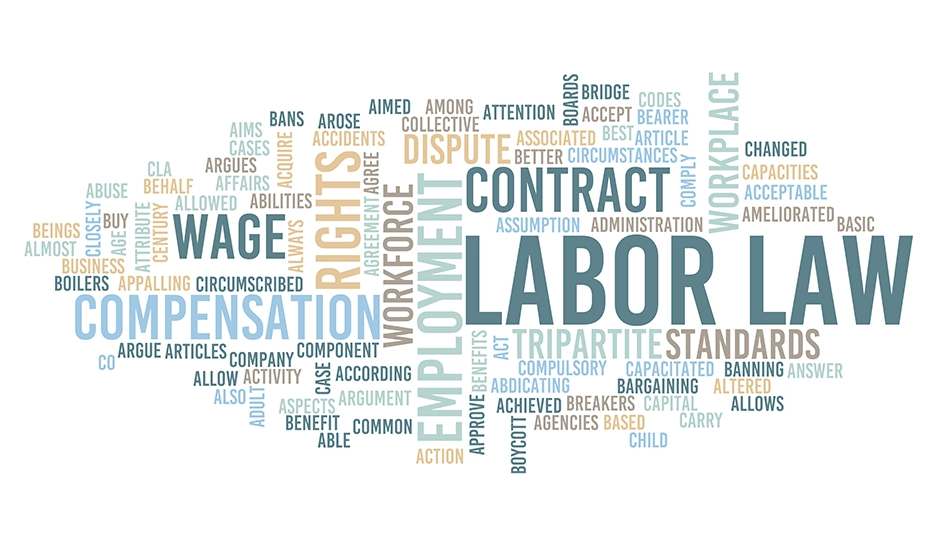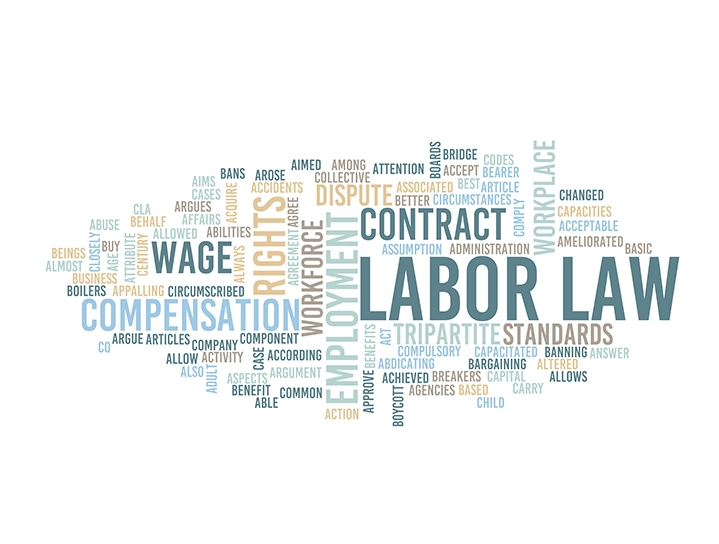


China Labor Law
- China's High Temperature Subsidy Policy: Legal Obligations for Employers (2025 Update)
- Official Notice: Ministry of Human Resources and Social Security & Supreme People’s Court Jointly Release the Fourth Batch of Labor and Personnel Dispute Case Studies
- Sichuan Province Issues Implementation Rules for Final Arbitration Awards in Labor and Personnel Dispute Cases
- Interim Measures for the Implementation of Flexible Retirement System
- HR Regulations: Latest Statutory Holiday Policy and 2025 Statutory Holiday Arrangement Notice
- Decision of the Standing Committee of the National People's Congress on Implementing the Gradual Delay of the Statutory Retirement Age
- How to Determine the Social Insurance Contribution Base for Employees
- Sick Leave Pay Standards in Shanghai
- Foreign Employees’ Salary Tax Exemption in China
- What contents should be stipulated in the labor contract for employees
- Individual income tax provisions related to wages and salaries
- Social Insurance and Housing Fund Information of the First-tier Cities in China
- China Employees' Paid Annual Leave
- Understand the Probation in China
- China’s Working Hour System
- China 2024 Holiday Arrangements
- The Complete Guide to China's Social Security System
- Free Webinar-How to Penetrate China's Market With Lower Risks
- Top 10 Questions for 2018 China's New Individual Income Tax That HR Cares About Most
- China Has Released an Eased Negative List for Foreign Investment
- China Published Guidelines on Overseas Investment-Part II
- China Published Guidelines on Overseas Investment-Part I
- China Plans to Increase Personal Income Tax Threshold
- China Introduces Short-term Hassle-free Work Permits
- Things You Should Know About Labor Disputes And Labor Law Compliance In China
- The Minimum Capital Requirements For a WOFE
- Tax Incentives for R&D Activities in China
- What Did The Annual Session Of The National People's Congress Reveal?
- Steps to Establish Company in China
- The Latest China Employment Compliance–Big Things For Foreign Employers
- China Government Services Improve for the New Economy
- Good Signal for Foreign Investment in 2017
- China Foreign Direct Investment: From January to December 2015
- Aspects to Consider When Hiring in China
- The Advantages of Setting Up Sales Office in China
- Rules and Guidelines for Employing Foreigner In China.
- Salary Rise of 8-15% for Skilled Talents in China
- Payroll Services in China
- Shanghai Free Trade Zone Company Registration
- Selecting The Right Staffing Firm For Foreign-and Foreign Invested Companies
- Selecting The Right Staffing Firm For Representing Office
- China Payroll And Taxation
- Comparison of China Company Formation
- Planning to Hire Employees in China? Know the Rules and Policies Before You Do
- The Trend of Labor Dispatch in China
- Categories of Foreigners are Exempted from Employment licenses and Permits
- Tips To Recruit In China
- Canada-China Foreign Investment: Strengthening of Canada-China Commercial Relationship
- New Regime for China Foreign Direct Investment
- Employment in China's Technology Industry
- China Government Will Begin Sorting Foreigners into Three Categories
- Chinese Company Formation — Forming A Wholly Foreign Owned Entity In China
- How to Hire Chinese Employee Legally without Chinese Entities?
- Shanghai is the First Wish to Work Choice in China
- Paying Foreign Employees in China: Individual Income Tax
- Talent Policies Help to Transform Shanghai
- Legal Issues About Setting Up Business In China Market
- Overview Levels Of Wage And Employment In China
- Chinese Labor Laws - Employment Contracts
- More
Consult
What are you looking for?






